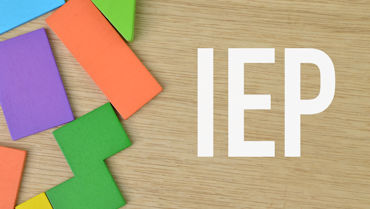Our Mission
The mission of the Connecticut Parent Advocacy Center is to educate, support, and empower Connecticut's families of children and youth with any disability or chronic conditions, ages birth to 26, and the professionals who serve them.
CPAC is committed to supporting each and every Connecticut family and youth with disabilities in understanding and learning to advocate for rights under the Individuals with Disabilities Education Act (IDEA). We advocate at the federal, state, and local levels to help remove barriers that families and youth face when advocating for appropriate support and services.
Our Vision
All families will have the confidence, knowledge and understanding they need to effectively advocate for their children and to partner with professionals to ensure the children and youth grow and learn to their full potential.
CPAC receives many questions about who we are and what we do and don't do. Here are some frequently asked questions about our organization:
» CPAC FAQ 2025
» CPAC FAQ Spanish 2025
WHAT'S NEW
You asked, we answered!
CPAC receives many questions about our services. Below you can find the most common questions CPAC gets in both English and Spanish!
» CPAC FAQ 2025
» CPAC FAQ Spanish 2025
How We Help
Every day, CPAC's Parent Consultants provide individual training, support and empowerment for parents and professionals who reach out to us with questions about the education of their children and students. We provide training programs at no cost to families and educators across the state. We make available a wide range of accessible online training and information on our website and through social media. We work with a wide range of partners to reach out to families, youth and educators to find and address the issues in the education and transition of students and young people from birth through age 26. CPAC is staffed by parents of children with disabilities who have training in and personal experience with the law and disability issues.

Online Learning
Opportunities
Webinars, Videos and
Modules.

Hot
Topics
Technology, school climate & bullying, inclusion, literacy, and more.

Newsletters &
Publications
Newsletters from CPAC and a Guide to Educational Terms (in English and Spanish).

Special
Education 101
Communication, eligibility, evaluation, legal rights, and more.

Key
Resources
Parent Support, Connecting Connecticut, Disability Specific and more

NEW Individualized
Education Program (IEP)
The IEP is the foundation for a student's education.

State & Federal
Resources
State and Federal Laws Supporting Students with Disabilities

Families & Schools
Working Together
Practices and Tools for Schools and Families
upcoming events
One Voice Conference
Thursday, April 24, 2025
9:00am-2:00pm
our annual One Voice Conference will be held on Thursday, April 24, 2025, and we would love to have you join us!
One Voice event will include all the features of a One Voice event that you have come to love and enjoy-
-A keynote speaker
-CTFSN staff sharing their stories
-Opportunities to meet other parents and caregivers in similar situations
-Giveaways
-Most importantly an opportunity to focus on yourself
-We will also have resource tables
-Light breakfast and lunch will be provided
This event is FREE and for PARENTS and CAREGIVERS to take a day for yourself and have some FUN. This conference will be in English and Spanish.
Date: Thursday, April 24th, 2025
Time: 9:00am-2:00pm
Location: The Clarion Inn, North Haven
Register here: https://ctfsn.org/conference-registration
> Register for event
